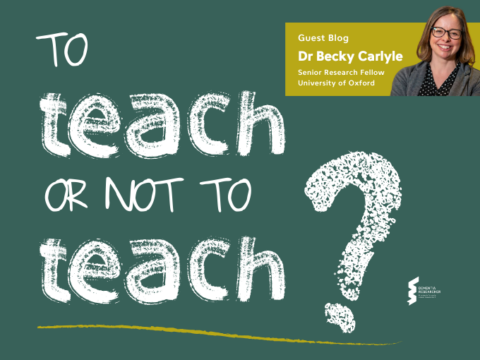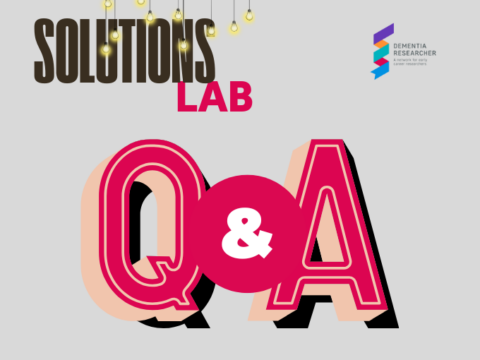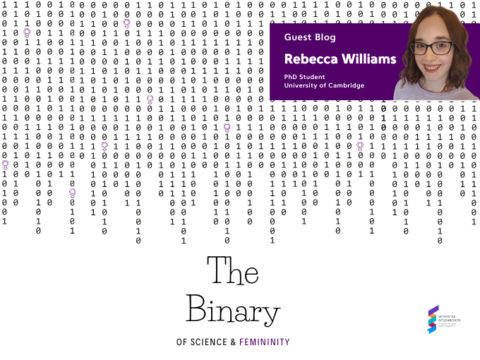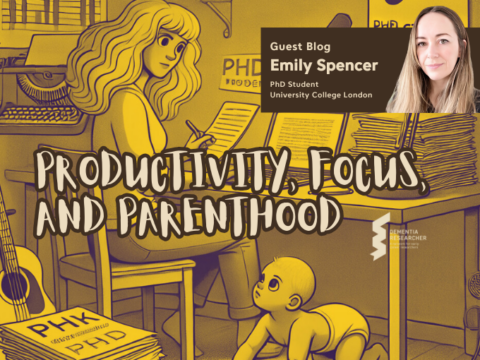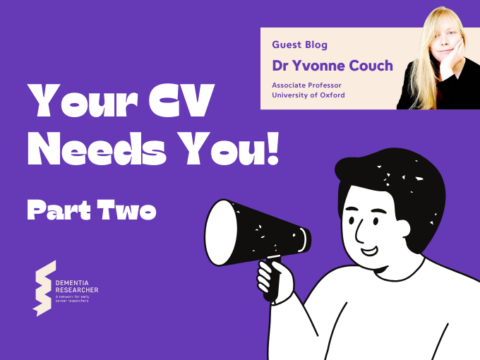It has been a few months since I last put fingers to keyboard and wrote a blog. I’m one of those people who need to be inspired, which is probably bad for someone who has ‘blogger’ in their twitter bio. In this blog, I have a simple message… it’s a great time to need research funding, because there is lots of it around, so get applying.
During 2020 and even in 2021, dementia research funding was a little hard to come by, particularly career-based grants. PhD and Fellowship funding was suspended by charities in the UK, other grants became even more competitive, and I met lots of early career researchers who were very worried! Fast forward to 2022, and as I write this in July the Dementia Researcher website has over 60 open grant calls in the directory, and in the UK the NIHR has just announced a further £11.8m in funding, and in the USA, Alzheimer’s Association is about to open its latest round of international Fellowship grants.
I always try to make my blogs useful, so I thought it helpful for me to highlight some of the open funding calls just in case you missed them. I also want to provide a few top tips for those who are looking for a job with funding, rather than their own funding, and finally make a case for why Alzheimer’s and dementia research is THE best place to be working.
Clinicians, Qualitative and Social Care
For clinicians, and by that, I mean all types of healthcare professionals, from physiotherapists to neurologists. Did you know… you’re in demand? There is a massive, concerted effort underway to try and encourage you to get involved in research. This comes in many ways, from supporting recruitment to studies, getting hands-on with delivery, and raising awareness. There is also brand-new funding from Alzheimer’s Society to allow you to lead small independent project, even before you do a PhD. Of course, they also have open PhD Calls and longer fellowship calls (with salary and research funding – something researchers have been asking for, for quite a while).
Alzheimer’s Research UK have Fellowships with the Association of British Neurologists and Race Against Dementia. For those interested in care, social care and clinical work the NIHR has funded all 15 of the NIHR Applied Research Collaborations (ARCs) to each award three career development grants for early career researchers in dementia, working with specific themes, and including qualitative research (keep an eye open for the individual calls).
Of course, there is also funding outside the UK! DZNE currently has its Hans and Ilse Breuer Foundation doctoral scholarship call open, for fundamental research, clinical research, and health care research, including the development of innovative health care concepts. In the US the Alzheimer’s Association are about to open their summer 2022 funding call., and as ever the NIH has a massive rolling programme of grants (and is currently funding dementia research at record levels, leading the world in grants).
Fundamental Scientists
It’s a pretty great time for those of you who live in the lab too! Alzheimer’s Society have project grants, PhD studentships and two types of Fellowship open (which are now 4 and 5 years long and include a larger stipend). The Alzheimer’s Research UK Fellowship is open, as well as the Race Against Dementia Fellowship I mentioned earlier just had its deadline extended to September, with five years funding and an amazingly comprehensive career support package.
The Wellcome Trust Early-Career Awards are also open, and this prestigious scheme provides funding for early-career researchers from any discipline who are ready to develop their research identity. The next UK Research & Innovation Future Leader Fellowship round opens on the 6th September, and again this is an amazing programme for researchers looking to establish themselves or transition to independence, or even looking to develop their own original and ambitious plans.
I just realised I’m already at 600 words… and I haven’t started to talk about programme grants, or funding for specific projects. My advice… take a look at the funding page on the dementia researcher website, the team do an awesome job at curating and listing all the relevant funding calls – it does tend to be a little UK centric, but I know they’re trying to make that more international.
Moving on, for those who are reading this and coming to the end of your PhD or your Postdoc position, of course there is another way you could go – applying for a job that comes WITH funding. Here are a few tips for those in the job market.
1. Get yourself on twitter. Yes, yes, let’s be honest if you’re not already on twitter, it is probably because you don’t want to be, or you don’t have the time, or have an allergy to social media. However, bear with me. Recently, I have seen dozens of posts from PIs and Lab Leaders ‘trailing’ upcoming jobs (before they are officially advertised) here is one example from Nicki Liachko
We’re hiring! Looking for a post-doc and/or senior research associate to study the role of TDP-43 in Alzheimer’s disease. This project is going to be 🔥 (at least- I’m pretty excited). Check out the job ads in the thread, or DM me for more info.
— Nicki Liachko (@nliachko) June 29, 2022
Not everyone will agree with this suggestion. However, I think you can also bring yourself to the attention of PI or Lab you would like to work for by actively engaging with them on social media. Don’t immediately slide into their DMs (for those non-social media users, this means sending the person a direct one-to-one message via the application or website), but spent a few weeks liking their posts, commenting (with supportive comments or questions) – I guarantee that they will look at your profile to see who you are, and do it often enough, and they’ll remember you; something that could be handy when you sit opposite them in an interview or see then at a conference. Once, you’re confident that you appear to be engaged, and no just interested in a job… slide away, and make your pitch.
2. It may seem obvious… but become a member on the Dementia Researcher website. Don’t just read or listen to this blog, go to dementiaresearcher.nihr.ac.uk click register at the top of the screen and job. You’ll get a weekly alert about new posts, including jobs. Our team scan all the main websites including jobs.ac.uk, individual Universities, social media and the Alz Forum to bring all the listing into one place
3. Last but not least, fall back on the dreaded ‘cold email’, I wrote a blog about this last year, so I won’t go into the details – but head over there and read the blog for top tips on how to structure your email.
Finally, for those who haven’t yet started on a path into dementia research, or for those who are thinking of leaving. Stick with it and apply for everything. Dementia research remains a priority, and the funders are doing an amazing job to provide the support you need, and fantastically we are seeing rapid improvements. This year we have seen Alzheimer’s Association increase support for ISTAART and students, ARUK publish and deliver a whole new ECR programme with mentoring and support, and now Alzheimer’s Society with new grants that have baked in, better terms providing a better deal. But most importantly… the people who will benefit from your research, need you to!
I’ll be at the AAIC & Alzheimer Europe Conferences this year, please do come and say hi, and tell me your tips for getting funding.
Author
Adam Smith was born in the north, a long time ago. He wanted to write books, but ended up working in the NHS, and at the Department of Health. He is now Programme Director at University College London (which probably sounds more important than it is – his words). He has led a number of initiatives to improve dementia research (including this website, Join Dementia Research & ENRICH), as well as pursuing his own research interests. In his spare time, he grows vegetables, builds Lego, likes rockets & spends most of his time drinking too much coffee and squeezing technology into his house.

 Print This Post
Print This Post
